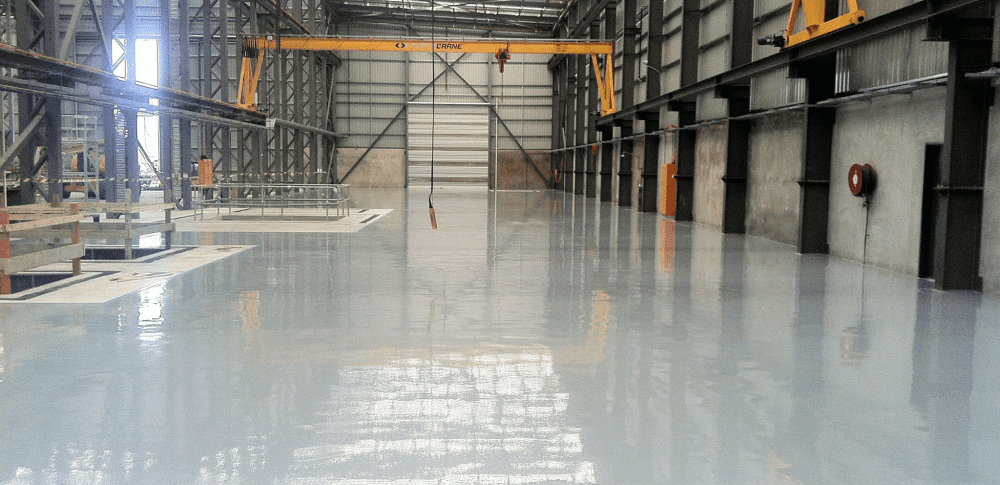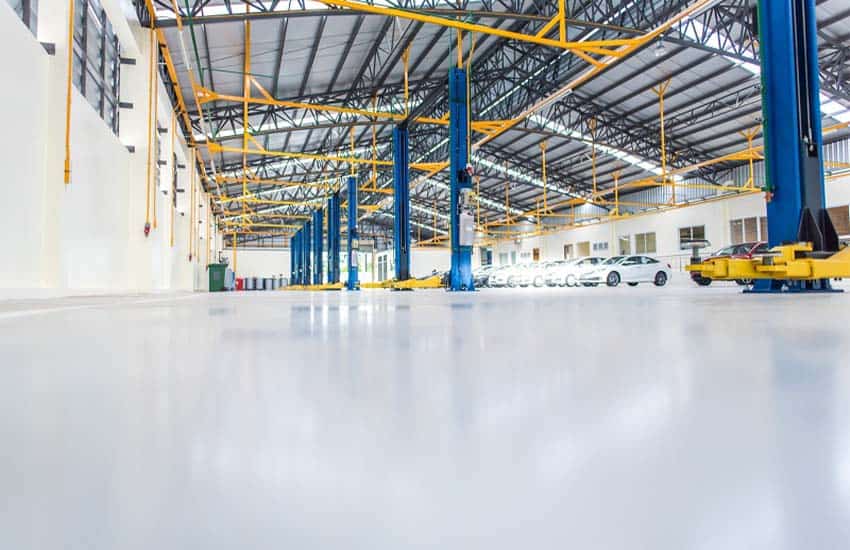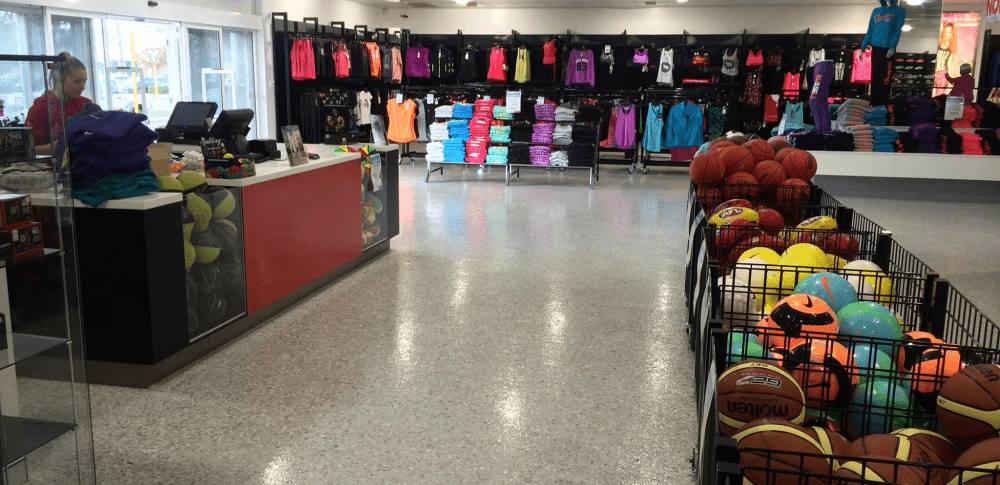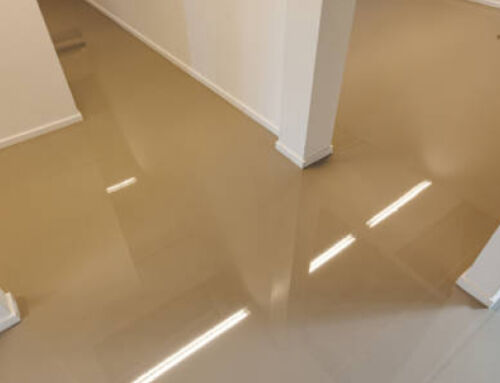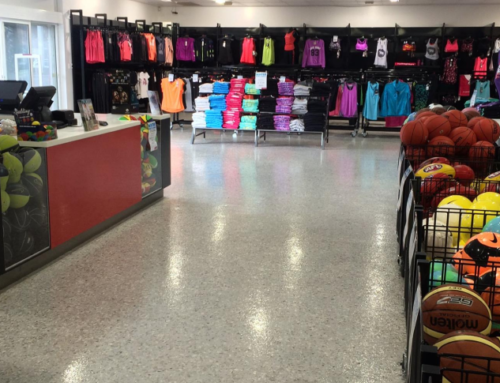If you’re looking for a durable flooring material that’s highly resistant to moisture, high traffic, impact, or spills, you can’t go wrong with epoxy flooring.
Made from a mixture of resin and hardening chemicals, epoxy flooring is a unique material that’s grow in popularity over the years. Long gone are the days when epoxy floors were found only in commercial settings. With longevity and aesthetic advantages, you’ll find epoxy flooring everywhere from your local shopping centre to your nextdoor neighbour’s house.
If you’re curious about upgrading your flooring with this strong and stylish finish, here’s everything you need to know about epoxy flooring. Plus, we’ll teach you how to tell if it’s the right flooring choice for you.
Before you read on… browse our latest premium epoxy guides (they’re free and packed full of design tips & money-saving tricks):
- Top Benefits of Epoxy Flooring Revealed
- What is Epoxy Resin (and Why is It So Popular?)
- How to Epoxy a Garage Floor
What is epoxy flooring made from?

As mentioned, epoxy flooring is made from resin mixed with hardening chemicals. When these ingredients are combined, it essentially creates a hard plastic floor coating that can be poured directly on concrete.
The result?
A strong, stain resistant flooring that’s perfect for schools, hospitals, industrial environments, labs, garages, and more.
What is epoxy flooring used for?
This unique flooring has many properties that make it appealing to customers around the world. Specifically, it is:
- Resistant to spills and chemicals: Unlike other types of flooring like laminate, wood, or marble, epoxy is extremely resistant to water and stains, and it will never warp with a spill.
- Strong and long-lasting: The chemical compounds in epoxy make it extremely durable and resistant to heavy machinery, shock, spills, heat, and more – no wear and no tear.
- Safe: These floors are highly visible, and they can be slip and static resistant, making them a safe option for commercial or manufacturing settings.
- Cost-effective: Epoxy resin is usually much more cost-effective per square meter than other flooring options.
- Eco-friendly: Your epoxy flooring will never erode or chip off and hurt the environment. You also don’t need harsh chemicals to keep the floor clean, making it a super eco-friendly option.
- Easy to maintain: Because it is poured on, epoxy flooring never has any ridges, seams, or other hard-to-clean properties.
It’s also aesthetically pleasing, particularly with the various options available today (more on this later).
Is epoxy flooring harmful?
Once it’s dried, epoxy floors are anything but harmful – it’s actually quite helpful, as it provides anti-slip, antimicrobial and anti-static properties!
That said, standard epoxy floors do have a strong chemical smell when they are drying, and these vapors can be dangerous if you’re exposed to them for any significant period of time, causing inflammation in the eyes, nose, and throat.
That said, with proper installation and cure time, the smell doesn’t last long, and you won’t be in harm’s way at all when the floor is done. Plus, a professional installer will wear protective gear to counter this exposure, and masks to prevent dust inhalation when sanding.
What are the most common types of epoxy flooring?
There are many types of epoxy surfaces you’ll find under your feet, and the plethora of options make it a versatile and customisable flooring option that’s suitable for both personal and commercial spaces.
The main types of epoxy flooring include:
Solid Epoxy

This simple, multi-use flooring option is available in a variety of colours. It’s great for spaces where you need strong protection and a straightforward design, including:
- Kitchens
- Restaurants
- Convention halls
- Garages
- Bathrooms
- Driveways
- Commercial buildings

